How to remove odor from the dishwasher?

The dishwasher made life much easier for the hostesses, but it often happens that the machine smells bad. We will help you figure out why an unpleasant smell appears, and how to get rid of it. We will give some advice on how to deal with this phenomenon, as well as recommendations for preventive measures.
The causes of the smell
If the new dishwasher smells unpleasant in the first days of using the equipment, then do not be alarmed. Most likely, this is the smell of low-quality plastic, and after several washes everything will return to normal.
But if in the dishwasher it gives off a sewer, a putrid smell or a smell of mold appears, then you need to look for the reasons. In such a situation, it is not very pleasant to rinse the dishes. We urgently need to get rid of such a problem.
The main reason for this phenomenon is food residues that accumulate in various parts of the dishwasher. First of all, food residues are stopped by the mesh filter, they can also get stuck in the drain mechanism, under the door and on the rocker arms.
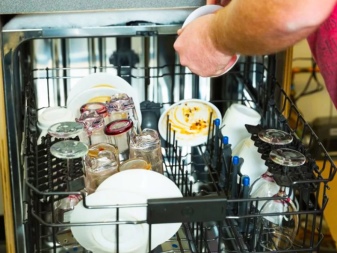
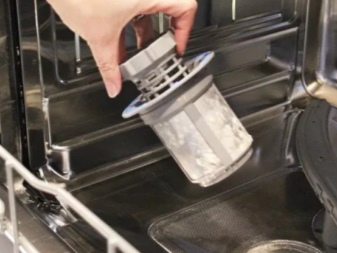
It should be borne in mind that an unpleasant odor can be caused by residual water at the bottom of the dishwasher and in the place where the sealing gum is, therefore, after washing, you should always leave the door of the machine open for drying and airing.
A sewer odor may be caused by an incorrect connection of the dishwasher. If the drain hose was connected without a siphon, then odors will not linger: it is imperative to ensure the correct operation of the drain mechanism.
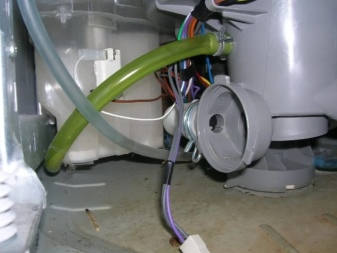
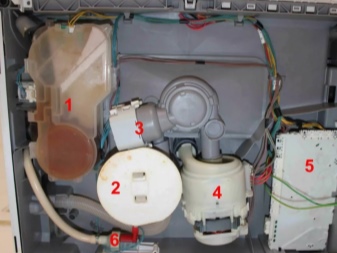
Ways to fight
It is possible to get rid of the stench in the dishwasher using purchased products with a chemical composition and more gentle folk, harvested in a home environment. Let's consider each method in detail separately.
The use of household chemicals
The modern market is replete with household chemicals, including those intended for dishwashers. Tablets, various special powders and flavors, gels, even flavored salt formulations will help to remove the bad smell.
Chemistry will quickly eliminate the problem with a fetid and putrid odor, in addition, remove a greasy layer, a layer of scale. In this case it is better to carry out several rinses before turning on the "wash" mode again.

You can simply wipe the inside of the machine with a soft cloth with detergents, but neither a hard sponge nor a metal brush can be used in this case. After washing the sealing gum, walls and bottom, you need to turn on the rinsing mode.
One of the disadvantages of such a product is that chemical products are not cheap, but they are effective. You need to know that it is unacceptable to use aggressive chemicals (with chlorine and chlorine-containing substances) in the dishwasher. Such means will not bring benefit and will only harm the technique.
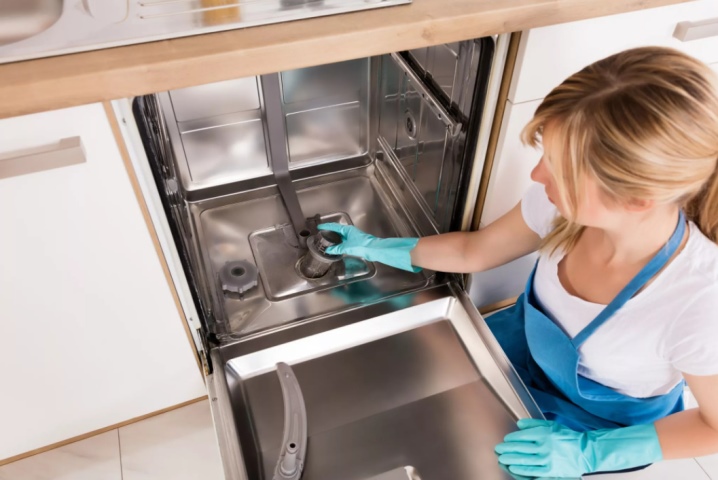
Using folk remedies
Housewives love to clean the dishwasher with home remedies, since there are always natural, safe, and most importantly, inexpensive components at hand. Here are some examples.
-
Table vinegar. Copes with scale and removes foreign odors. 60-70 milliliters of vinegar (category "table") is poured into the dishes, placed together with the vinegar liquid on the uppermost grid of the dishwasher, and put into operation. Vinegar itself has a specific smell, but this should not be alarming, after such washing it quickly disappears.
-
Baking soda. One hundred grams of white matter is poured onto the bottom, and the unit is turned on for any mode. The result is cleanliness and freshness inside the dishwasher.
-
Soda, hydrogen peroxide and oil (favorite essential). It is necessary to prepare a composition of baking soda (one pack), 10 milliliters of hydrogen peroxide and any essential oil (25-30 drops are enough). The resulting mixture is mixed well and placed in a freezer for half an hour, and then a ball is formed from it, which is placed in a basket for dishes, and the device is started in a mode for washing with rather hot water.
At home, cleaning is carried out with powder borax. All of these recipes refer to sustainable and safe methods of odor control and dishwasher cleaning. It is recommended to carry out such events periodically, even for preventive purposes. Next, we will talk about other preventive measures.
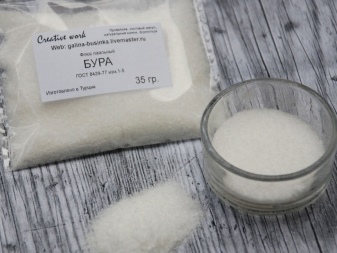
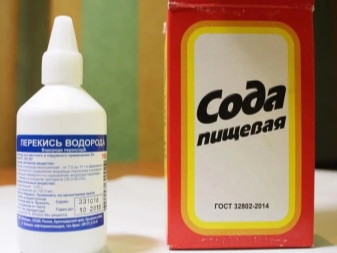
Prevention measures
The first step is to properly operate the equipment and observe the following instructions:
-
after each dishwashing or before the next start, you need to clean the machine from food debris;
-
remove moisture in the dishwasher after each time, wipe the drum and the sealing gum (under it too) dry, remove grease and food pieces that may get stuck during the washing process;
-
use periodically special compounds that remove scale and fatty deposits;
-
rinse the mesh filter regularly (do this even if it seems to you that you thoroughly cleaned the dishes before putting them in the dishwasher);
-
in the absence of time for washing, turn on the "rinse" function, but do not keep dirty dishes, pans and pots in a closed machine;
-
add dishwasher fragrances that absorb and eliminate odors.
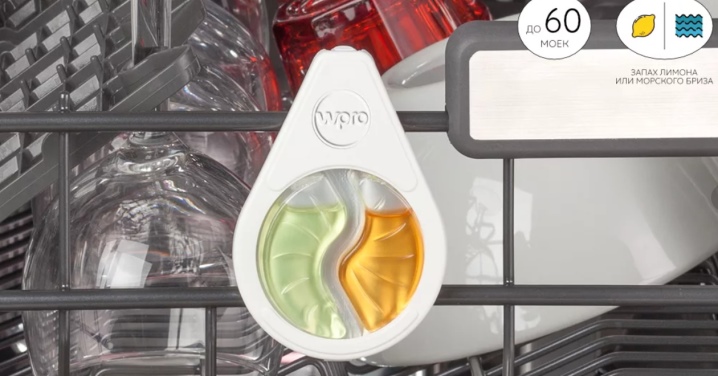
In addition to the above, once every 2-3 months, it is advisable to carry out a general cleaning of the dishwasher, once every 4-5 weeks, wipe the internal parts of the device with diluted vinegar (make a solution, dilute vinegar with water in the ratio indicated on the label).
It does not take much time to care for the dishwasher, and when the equipment is kept clean and tidy, then you do not need to make efforts to combat additional unpleasant odors. Compliance with all the rules for installing and operating the unit will make the dishwashing process attractive and will allow housewives to do other household chores at this time.














The comment was sent successfully.